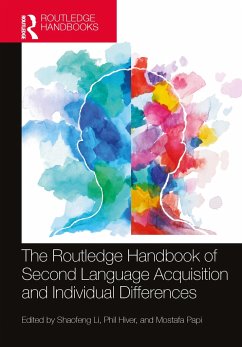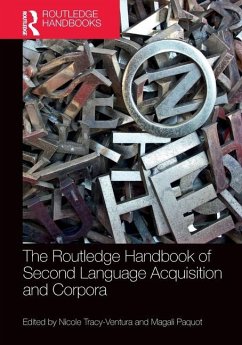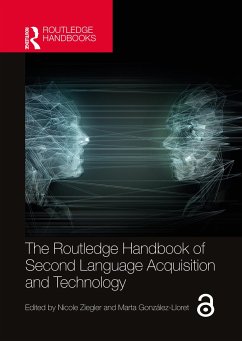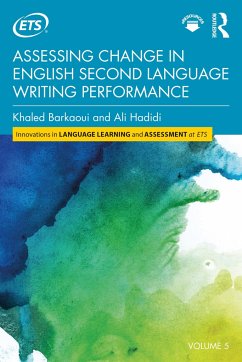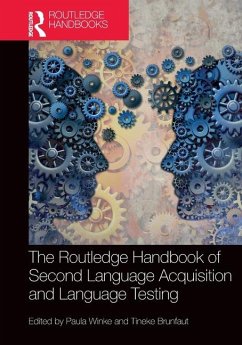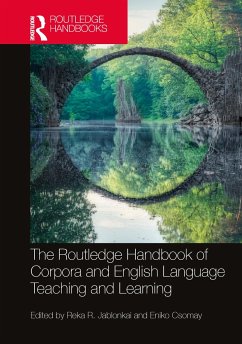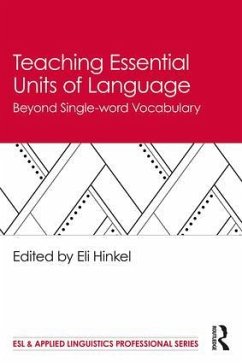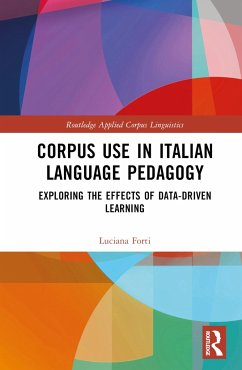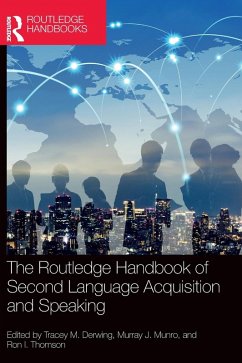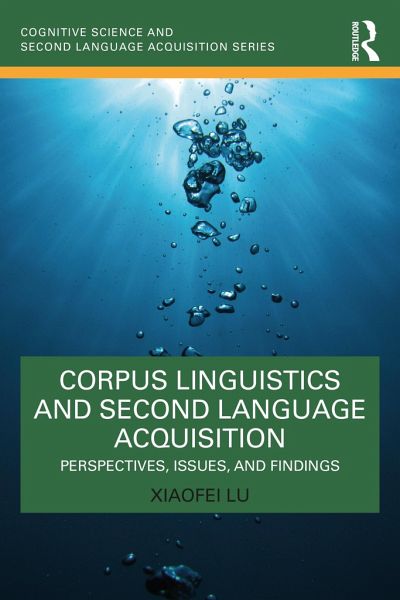
Corpus Linguistics and Second Language Acquisition
Perspectives, Issues, and Findings
Versandkostenfrei!
Versandfertig in 6-10 Tagen
41,99 €
inkl. MwSt.
Weitere Ausgaben:

PAYBACK Punkte
21 °P sammeln!
In Corpus Linguistics and Second Language Acquisition, Xiaofei Lu comprehensively reviews empirical studies that employ corpus linguistic methods to investigate issues in second language variation, processing, production, and development. These methods enable advanced students and researchers to:Examine learner and task variables that condition variation in second language useUnderstand the effects of various input factors on second language processing and productionTrack group longitudinal trajectories of second language development and the input, learner, and task factors that affect such tr...
In Corpus Linguistics and Second Language Acquisition, Xiaofei Lu comprehensively reviews empirical studies that employ corpus linguistic methods to investigate issues in second language variation, processing, production, and development. These methods enable advanced students and researchers to:
Examine learner and task variables that condition variation in second language useUnderstand the effects of various input factors on second language processing and productionTrack group longitudinal trajectories of second language development and the input, learner, and task factors that affect such trajectoriesProfile inter- and intra-learner variability and individual variation in second language longitudinal development
This book will serve as an excellent resource for students and researchers with interests in corpus linguistics and second language acquisition.
Examine learner and task variables that condition variation in second language useUnderstand the effects of various input factors on second language processing and productionTrack group longitudinal trajectories of second language development and the input, learner, and task factors that affect such trajectoriesProfile inter- and intra-learner variability and individual variation in second language longitudinal development
This book will serve as an excellent resource for students and researchers with interests in corpus linguistics and second language acquisition.






